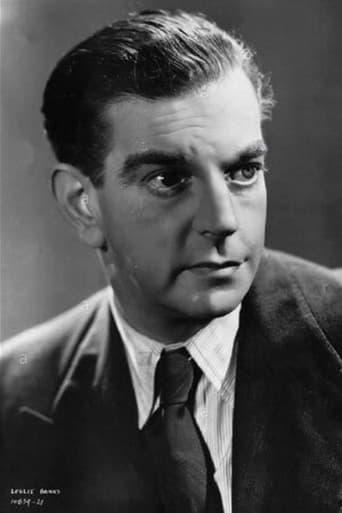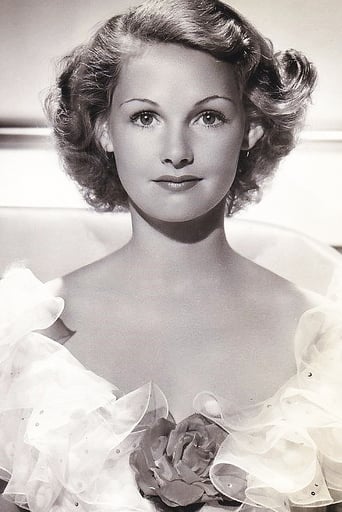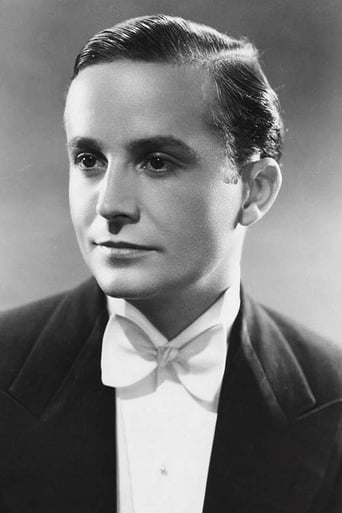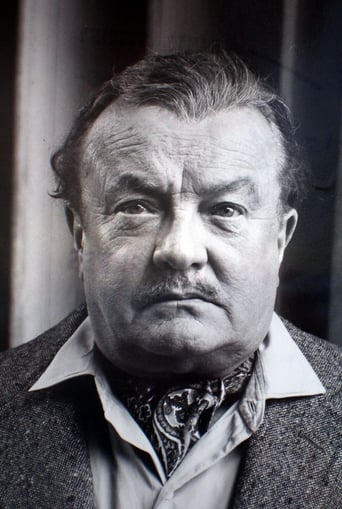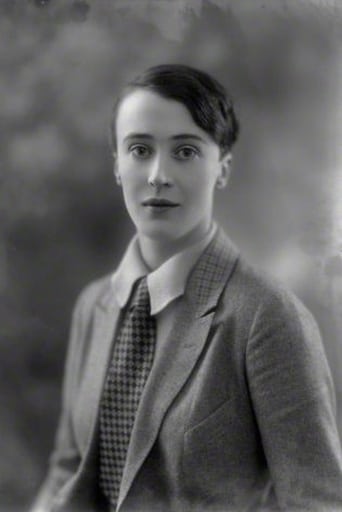Wordiezett
So much average
Dotsthavesp
I wanted to but couldn't!
Bluebell Alcock
Ok... Let's be honest. It cannot be the best movie but is quite enjoyable. The movie has the potential to develop a great plot for future movies
Hayden Kane
There is, somehow, an interesting story here, as well as some good acting. There are also some good scenes
JohnHowardReid
Associate producer: S.C. Balcon. Producer: Michael Balcon. Made and recorded at Ealing Studios, Ealing, London. Copyright 27 October 1942 by Ealing Studios, Ltd. New York opening at the Little Carnegie: 24 June 1944. U.S. release through A.F.E. Corp: 28 June 1944. U.K. release through Associated British Film Distributors: 7 December 1942. Australian release through British Empire Films: 22 June 1944. 8,632 feet. 96 minutes. U.S. release title: 48 Hours.Went the day well?We died and never knew, But, well or ill,Freedom, we died for you.SYNOPSIS: May, 1942. The villagers of Bramley End are glad to billet a group of English Tommie's, little suspecting that in reality they are an advance guard of German parachutists.COMMENT: A trifle dated, but still highly suspenseful, this handsomely photographed (on actual locations), well-crafted British entry is distinguished by an extraordinarily large number of fine performances. Outstanding in an outstanding cast is Valerie Taylor who brings genuine passion and credibility to the pivotal role of Nora Ashton. Here is a carefully built up and powerfully engrossing portrait which I cannot describe at length for fear of giving away too much tension. The force and impact of her climactic scene is one of the most shattering in the whole history of the cinema. In her frail person, she skilfully embodies and carries all the emotions — the dawning suspicions, the fears, the courage, the sense of revulsion — of a village, of a nation.The other players have less complex characters to flesh out, but all excel. Leslie Banks, the stiff arch-type British hero of earlier films, handles the brutal quisling with suitable duplicity, while Edward Rigby, Mervyn Johns, Muriel George, Marie Lohr, David Farrar, young Harry Fowler and even John Slater give impressive accounts along much their usual lines. All have racy dialogue and tense opportunities to work with. Two players who don't get much of a go, though, are the nominal hero and heroine of the piece, played by Frank Lawton and Elizabeth Allan, respectively. True, we do see a bit of Frank at the climax, but Miss Allan's part is so small and so lacking in color that she registers far less than some of the bit players — for example, Eric Micklewood who plays Klotz. Micklewood really has only the one scene, but he makes it strike home. His one word of dialogue, "No," is unforgettable.Cavalcanti has directed with his usual style and assurance. Atmosphere is one of Cavalcanti's strong points. Here the action scenes are also handled with flair and a realistic vigor (a little too realistic, perhaps, for some viewers). Other technical credits, particularly photography and music, are likewise outstanding."Went the Day Well?" is praised to the skies in almost all the reference books; and for once a film really justifies its enormous critical reputation.
Tony Bush
A latterly controversial propaganda piece that even today represents a powerful, if transparently manipulative slice of British wartime filmmaking.Taken from a story by Graham Greene, the premise sees a chocolate box English country village, packed to the brim with staunch salt of the earth types from various strata of the class system, which plays host to a troop of Nazi invaders disguised as regular Tommies. The locals soon rumble the dastardly plan and gradually, as the bulldog spirit inevitably blooms and swells, turn the tables on their oppressors and merrily chop, shoot, stab, strangle, punch and grenade the evil Hun interlopers into submission – well, death really.The villagers – from the lady of the manor to the lowly poacher and the local postmistress – are hewn from ye olde stout oak of English courage and fortitude, every man jack of 'em. The Nazi troops are evil, barbaric, baby-bayoneting, child-murdering dictators through and through. They have no redeeming features whatsoever. They are uniformly inhuman.Many of the villagers get blown away – main characters die indiscriminately – but they all cop it doing their duty and performing deeds of selfless heroism or flag-waving moral defiance. The Germans buy it because they deserve to, and that's reason enough here.The controversy heaped on the film in later times stems from it being so amazingly subversive in its approach along with the gleeful degree of sadistic violence suggested on screen. In one scene the local postmistress throws pepper in the eyes of a Nazi trooper and then whacks him into the next world with an axe. She is subsequently brutally transfixed with a bayonet when another Nazi walks in on the scene. Earlier the local vicar is shot point blank in the church by a Nazi officer – no concept of sanctuary or God, you see? There's more, much more, but it's best to see and enjoy (or not) for yourself.I love this film on two levels. Firstly, as a remarkable historical artifact depicting a fantasy England that never was and never will be. It smartly dupes you into wanting to believe that this is just the way it was and truly should have been. You end up thinking maybe it was a lot like this back then. Even though you know full well it wasn't. Secondly, it's a bloody good crack. It demonises and dehumanises the enemy of old and is more black and white than hot tar on a freshly laundered bed sheet. There is plenty of action and slaughter, and even though it's tame by modern standards due to a lack of explicit visuals, what it suggests by leaving sight unseen is a force to be reckoned with. There is no doubt who to root for. On the one hand a group of righteous, good, humane, patriotic and caring folk (us). On the other, a bunch of irredeemably evil bastards out to butcher you and your kids (them). Clear enough.Racist, bigoted, xenophobic, prejudiced and wholly simplistic. But in the context of the times, perhaps not without some justification. And possibly one of the best British war films ever made. Seek it out.
pingshar
Combine wooden acting, an improbably plot, a flashback spoiler and caricatures for the enemy, and what have you got? A boring movie.I'm not sure which is more annoying, the stilted ladies' voices, the deafening din of chirping birds (are British birds always louder than human voices?), the sneering German soldiers, or the absurdity of assembling a bunch of German soldiers in a British country village who, all but one, speak perfect British English, complete with British military trucks and gear.There is some brief mention of German parachutists being sighted earlier. So why isn't the military out searching for them? Yes, they are going to get tripped up, but do you seriously expect them to bring Austrian chocolate bars with them? If the purpose of this film was to make the British public suspicious of anything and everything, then it did a fine job. But if you are looking for an entertaining wartime movie set in England, you would be far better off with "Mrs. Miniver." Frankly, I've seen more interesting public service announcements. The only way someone could view this as a great movie is if they are British, and praising British war movies was a required.The prospect of a German invasion was real for awhile, primarily after Dunkirk. The British government prepared detailed written plans for what to do if the Germans invaded successfully -- and these plans were made into a detailed re-enactment documentary. The possibility of a single German dropping in was entirely real. Private Schulz tells the fictional story of what happened to one -- he was spotted almost the moment he walked into a pub.It was wartime, and it was OK to turn the German soldiers into detestable caricatures. But did they have to turn the British women into caricatures, too? The only one that seemed human was Nora.I'm glad this movie is still available, as a historical document. But it seems almost like amateur hour. Perhaps the best British filmmakers were in war service. Unless you are very interested in WWII or are British, you can skip this and you won't have missed a thing.
Wizard-8
"Went The Day Well" is a wartime movie that is kind of hard to find on this side of the Atlantic. It took me some searching to find it, but it was worth the effort. Although this movie didn't have the budget of wartime movies coming from Hollywood, it's compensated by some good scripting and direction. Unlike some movies that portrayed the enemy as buffoons, the enemy here is dead serious, killing a number of the villagers in the movie. In fact, even though the movie opens with a prologue that more or less informs the audience that the villagers will prevail at the end, the struggle is so long and hard that even then you'll wonder if the villagers will indeed win the conflict. But the movie isn't COMPLETELY serious - there are occasional touches of humor that prevent the movie from becoming too bleak. A movie well worth your time.


